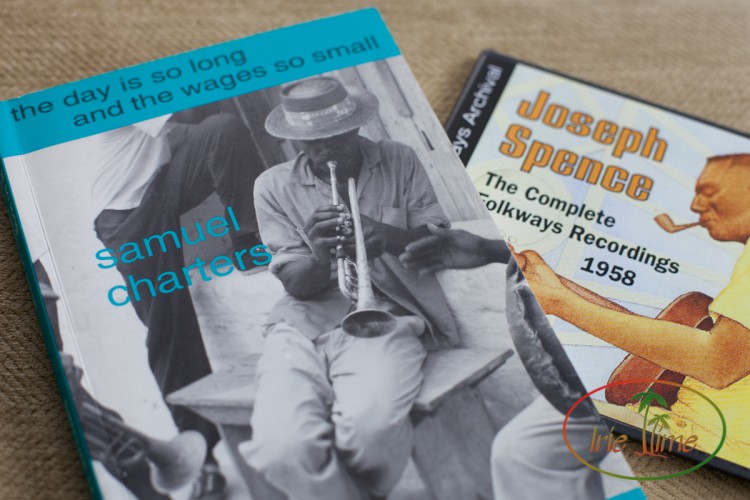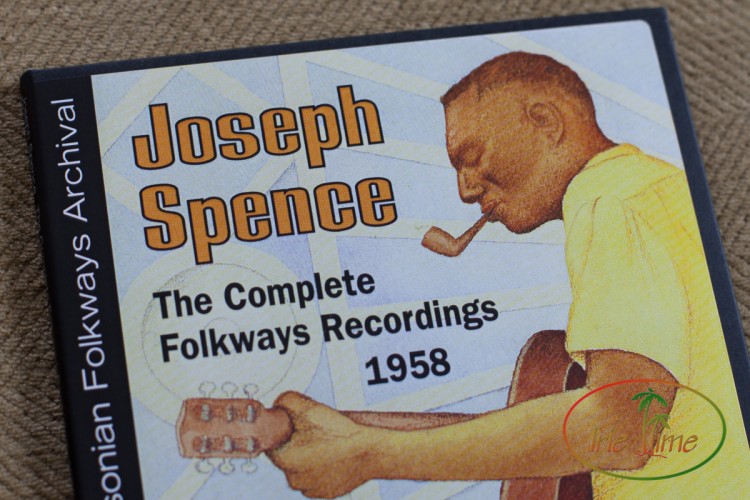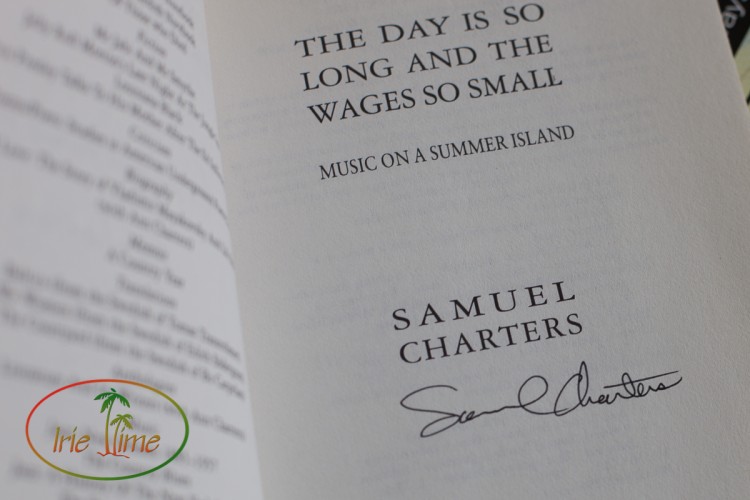
In preparation for each trip, I like to do some research on the history of the area, and sprinkle in some other books related to island life. This year’s trip is to Andros Island, Bahamas, so I picked up a copy of Samuel Charters’ book, “The Day is So Long and the Wages So Small.” Samuel Charters was a highly-regarded music historian, known for capturing some of the great performers of blues and jazz when the music was still unknown to many Americans. He began making recordings for Folkways Records in the 1950’s, including some of legendary performers like Lightnin’ Hopkins, and wrote the influential history of blues music, “The Country Blues,” in 1959. He was inducted into the Blues Hall of Fame in 2011.
He did not stop short when it came to seeking out local music and preserving the sound unique to the times. In 1958, he and the woman who would become his wife, Ann Danberg, set out to find a “different kind of music from anything [he] had ever heard before.” In the 1930’s, Alan Lomax had made recordings of Bahamian music, which the Library of Congress issued in limited distribution. Charters got ahold of some of these recordings, and the music of Andros stuck in his head. In the summer of 1958, with a few months of time on their hands, Sam and Ann set off on a journey to the island of Andros, the largest of the Bahamian islands in terms of area, but home to only 900 residents.
Travel to the out islands was pretty challenging back then. After an attempt to cross from Nassau to Andros via fishing boat fell through, they opted for the flight over, despite their small budget for housing, food, and payments to musicians who would agree to record with them. The first recordings, made on the porch of the cottage they rented for $14 a week, were of Joseph Spence, a guitarist known to have influenced Ry Cooder, Taj Mahal, and the Grateful Dead, among others. Sam and Ann came upon him, thinking they were hearing two performers, surprised to see that it was simply Spence and his guitar. I also ordered the recordings by Sam and Ann, available through the Smithsonian Institute which makes Folkways Records recordings available for purchase. I was curious how unique the sound would be to me, nearly 60 years later. It was like nothing I had ever heard before. Even “Jump in the Line,” which I’ve heard recorded by a number of artists, was so unique.

The book vividly describes a number of other musicians whom they recorded, and their experiences on the island, from an encounter with a mako shark, to the festivities of August Monday, to tracking down the elusive vocalist, Frederick McQueen. The words are accompanied by Ann’s photos, which bring the story home.
Samuel Charters passed away just last year at the age of 85. A wonderful tribute to him can be found on the New York Times website here. His wife, Ann, is a professor of American Literature at the University of Connecticut. She and Sam donated donated a collection of recordings and sheet music to create the Samuel and Ann Charters Archives of Blues and Vernacular African American Musical Culture at the university.

So much of the book reminded me of our trip to Barbuda, from the description of the flight, to the details of the settlement, including the homes, churches, and animals at every turn. It was near the end of the book that I found myself again smiling. Sam is describing their return to Nassau after their summer on Andros, and one of the men in the bar/guest house remarked, “Those boys a little behind.” It was reminiscent of the words spoken to us at the airport in Antigua as we were departing for Barbuda. In the final chapter, Sam remarks that he and Ann knew that they would never see Andros again the way it had been that summer, “so isolated in its own time and its own century,” and they wondered what it would be like once the island developed, with hotels, electricity, radio and television. Well, this June, I intend to find out, as we travel to Andros, staying just north of the area where Sam and Ann spent that summer so long ago.
Enjoy our Andros posts:
